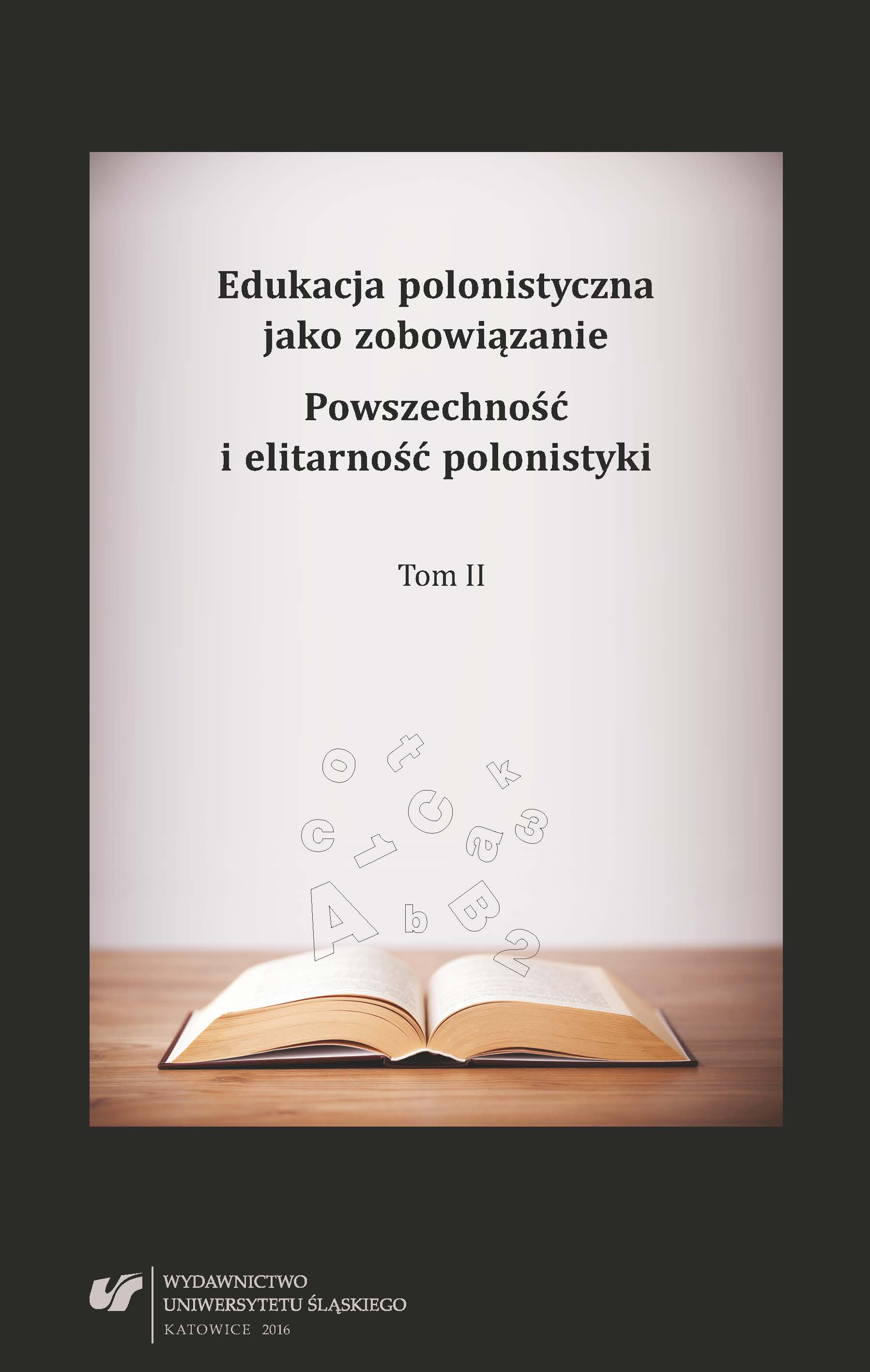Uczniowskie prawo do reader’s response. Czy Celtowie i Australijczycy najtrafniej odczytali testament Wóycickiego?
Student’s right to reader’s response. Were the Celts and the Australians the most accurate in interpreting Wóycicki’s testament?
Author(s): Witold Bobiński
Subject(s): Language and Literature Studies
Published by: Wydawnictwo Uniwersytetu Śląskiego
Keywords: literary education; reader’s response theory; aesthetic experience; pleasure of text; use of text
Summary/Abstract: The article concerns the problem of incorporation of elements of the reader’s response conception into literary and cultural education. The theory of reader’s response was developed by Wolfgang Iser, Stanley Fish and — in some sense — also by Norman Holland. In Polish didactic tradition, it would be necessary to refer to the works of Kazimierz Wóycicki, the inventor of the concept of aesthetic experience (impression), which — according to Wóycicki — is crucial in the process of reading or experiencing each work of art. Currently, the idea of using a reader’s response strategy (or just its variation) in literary education is popular, especially in Australia and Ireland. The author reports on the lectures delivered by Brenton Doecke and Larissa McLean Davies during the 10th IAMTE (today ARLE) Conference in Odense (Denmark) in June 2015, and describes a new model of Living Certificate exams in Ireland. Both attempts seem to be very encouraging as the ways of bringing literature close to life in the area of education.
Book: Edukacja polonistyczna jako zobowiązanie. Powszechność i elitarność polonistyki. T. 2
- Page Range: 23-33
- Page Count: 11
- Publication Year: 2016
- Language: Polish
- Content File-PDF

